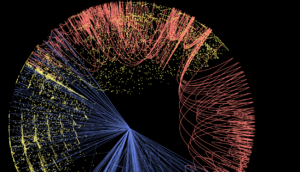
post
February 20, 2019
Forrester: 10% of U.S. jobs will be lost to automation in 2019
Raconteur explores how bots are changing the role of Chief Financial Officers (CFO) and their corresponding departments [...]
VentureBeat’s recent article on Forrester’s latest report on artificial intelligence brings up some interesting points. There is often talk of the gloom and doom that AI will bring on, especially in terms of eliminating key jobs through automation. There is no doubt that AI is going to have a massive impact on the way businesses operate, but what does this new future look like?

The rise of digital workers
Firstly, companies and startups alike are going to see an increase in digital workers created by robotic process automation (RPA) and AI. An increasing number of businesses are looking to scale at faster levels than before, and are going to be searching for solutions that can automate and optimize tasks traditionally done by humans.
Automation is all about giving and taking

Automation tends to be associated with loss of jobs, and while this holds true in Forrester’s findings, that is not the whole story. 2019 will see roughly 10% of US jobs eliminated due to automation, but that same automation will also create about 3% of today’s jobs.
However, this new increase in automation has bigger implications down the line. As companies begin to fully scale operations to keep up with the rest, it means the marketplace for AI solutions is going to be fiercely competitive. A Deloitte survey currently posits the annual global growth rate for AI-as-a-serve at 48.2%, with no signs of slowing down. This ripple effect then bleeds into other business areas, such as recruitment for AI talent, as businesses look for ways to retain their edge. Forrester’s survey posits that this search for talent will lead to “unprecedented job match success rates.”
Use cases you need to know about
Forrester’s research points to four use cases wherein businesses see a real return on investment:
- Analytics that solve platform issues
- Chatbots integrated with RPA bots
- Internet-of-things (IoT) events that trigger “digital workers”
- Text analytics that organize unstructured data into “clean files” for RPA software.
Spot some commonalities? These use cases all point towards the future of AI — intelligent automation. Rather than strip away necessary jobs, AI is being used to free up employee time from rote tasks, and increase overall job satisfaction. These solutions are able to bridge the gap between menial tasks and human expertise, rather than limit the personal touch. According to the report, ML’s [machine learning] strength is data. Knowledge engineering’s strength is human wisdom. Used together, enterprises can dramatically accelerate the development of AI applications.”
Read the full article here
Stay up to date
Latest Articles




